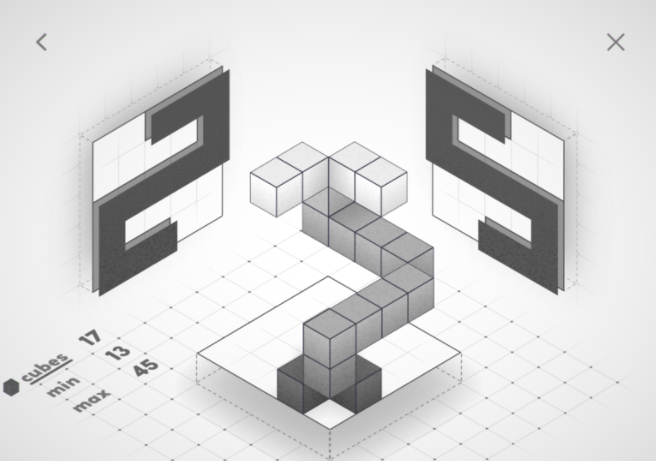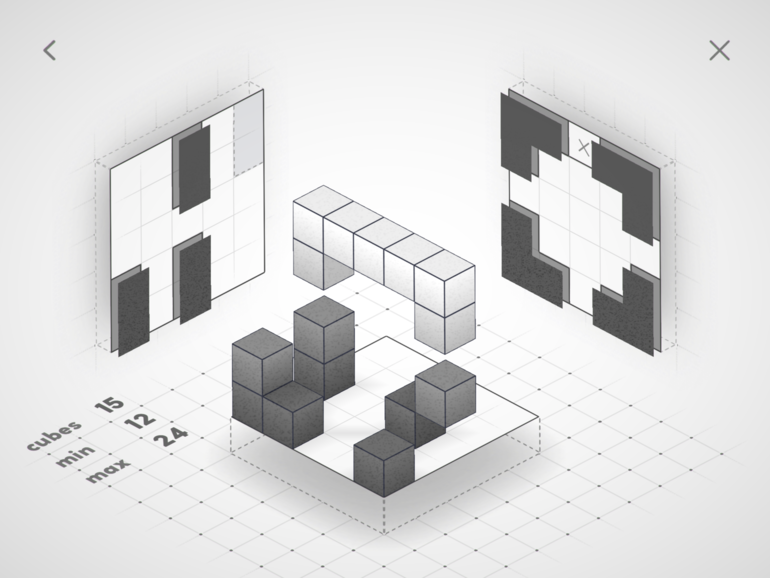App of the week: .projekt review
Twist your brain with this spacial mobile puzzler that forces you to think in two and three dimensions – at the same time

by Stuff Staff
.projekt wants you to look at things in a new way. This puzzler is based around shadows, and takes place on a five-by-five isometric grid on which you build a blocky structure. Its silhouette from two angles is projected on to walls, the aim being to match grey patterns plastered across them.
It comes across like minimalist Lego combined with Shadowmatic. And as you flip your creation around in 90-degree increments, figuring out the twisty-turny shape that will meet your goal, .projekt slowly worms its way into your brain.
That said, although an engaging, contemplative, lean-back experience (especially on a tablet), .projekt is no pushover. That this game has teeth becomes clear after you’ve barrelled through a small number of introductory puzzles, designed to help you get to grips with the basics. The game then says to prepare yourself for a real challenge: cube targets.
.INDIREKT
What this means is you can continue to play through the entire game by tapping out structures until they just work, but you’re essentially a failure if you don’t also figure out how to use the fewest possible cubes and – entertainingly – the most. (Not both at once, obviously.)
At some point, you’ll also twig that your structures don’t have to work in any conventional manner. Early on, you’re informed you can long-press a cube to remove it. Initially, this is great for dealing with sausage-finger placement errors, but increasingly this skill becomes a vital part of your toolkit.
.projekt is at its best when what you build tends towards the weird and surreal – impossible creations that hang in the air like someone forgot to tell them about gravity. They almost become optical illusions as you scratch your head, trying to figure out how you can prune a few more cubes, in order to meet your goal.
LOST IN SPACE

Only occasionally is the game’s thoughtful and calming demeanour disrupted. It abruptly hurls you to the next level when you complete one first time, rather than asking if you want to hang about and try for the two goals; and the X button wipes the playfield without warning. (Top tip: use < to close the current puzzle.)
There’s also the snag that precision – which .projekt demands – is tricky to pull off in isometric. Sometimes, getting the structure just so can be fiddly, or you’ll need to remove chunks of it to plant a vital block in an area obscured from all viewpoints.
Still, these are minor quibbles. .projekt is captivating to the point it casts a shadow over other games you’ve got installed, blocking them out until you’ve cracked every level three times over.
.projekt is available for US$1.99 on Android and iOS.






